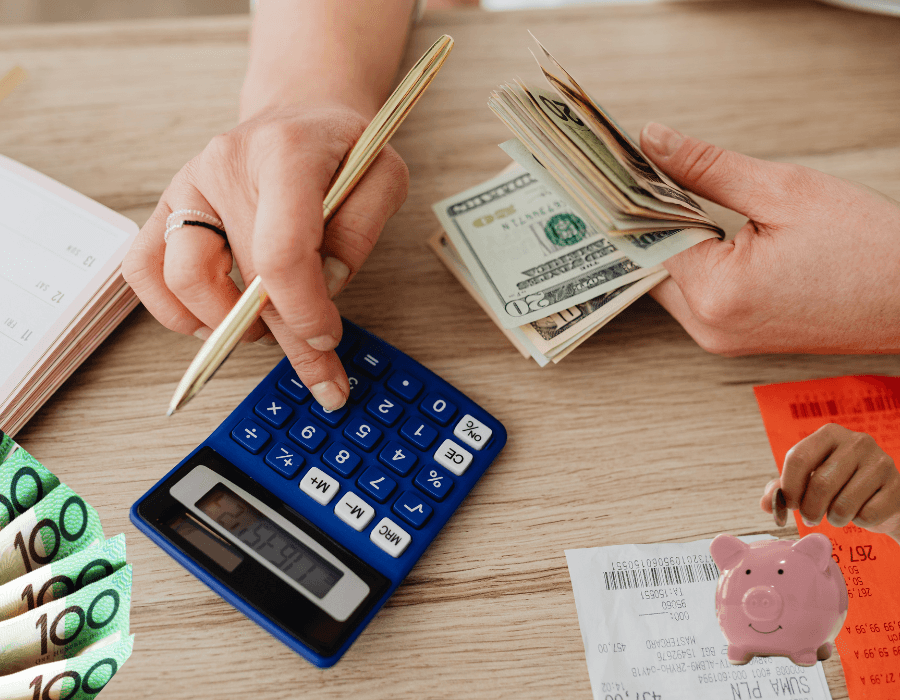Do I have enough Money to survive?
A simple check of your finances to see if I have enough to survive. if you earn and have saved enough to cover your everyday needs—like rent, food, bills, healthcare, and getting around—while keeping life steady and manageable.
Money is at the heart of most decisions in our lives. Whether you’re budgeting for essentials or dreaming about future financial freedom, the question always lingers: “Do I have enough to survive?” In today’s turbulent market, knowing your financial condition is more important than ever.
This blog will uncover the truth about money, highlight strategies to assess your financial health, and provide actionable tips to achieve financial security. Whether you’re managing debt, building savings, or looking to improve your money mindset, this guide is your one-stop resource.
The Role of Money in Happiness
Money undeniably impacts our happiness by fulfilling basic needs and creating opportunities. Without financial stability, stress and anxiety can overshadow life’s joys. However, money’s influence on happiness has its limits. A well-known study by Daniel Kahneman and Angus Deaton found that happiness increases with income but plateaus at around $75,000 annually. Beyond this point, more money has little impact on daily emotional well-being.
How to Calculate “Enough”?

The concept of “enough” isn’t about earning a specific dollar amount; it’s about aligning your income with your needs, goals, and future aspirations. For some, enough might mean covering rent and groceries without stress. For others, it might mean being able to travel occasionally or save for a child’s education. Regardless of your situation, here’s how to figure out what “enough” looks like for you.
Step 1: Create a Budget
Budgeting is the foundation of financial clarity. Start by categorising your income into three main areas:
Essentials: These include rent, utilities, groceries, and transportation.
Savings: Set aside money for emergencies, investments, and long-term goals.
Discretionary Spending: This covers non-essentials like dining out, entertainment, and hobbies.
Get Help :Moneysmart.gov.au
Step 2: Assess Your Emergency Fund
An emergency fund is your financial safety net. It provides peace of mind when life throws curveballs, like medical emergencies, sudden job losses, or car repairs.
How to Start:
If developing a whole fund feels overwhelming, set a small goal, such as $1,000.
Gradually save 3-6 months’ worth of living expenses.
Step 3: Prioritize Debt Repayment
One of the main barriers to financial stability is debt. High-interest debts, like credit card balances, can quickly snowball, making it harder to achieve “enough.”
How to Approach Debt Repayment:
Use the Avalanche Method: Pay off high-interest debts first while making minimum payments on others.
Or try the Snowball Method: Pay off the smallest debts first to build momentum and confidence.
Tip: Avoid accumulating more debt while paying off existing balances. Adhere to your budget and spend with awareness.
When Money Contributes to Happiness
While money by itself cannot buy happiness, it undeniably plays a significant role under certain circumstances. When used wisely, money can pave the way for a more fulfilling life by alleviating stress and enabling opportunities. Let’s explore how money can contribute to happiness in meaningful ways.
1. Meeting Basic Needs
Happiness becomes elusive when basic necessities such as food, housing, and healthcare are out of reach. Financial stability ensures that these essentials are covered, reducing stress and anxiety. It provides a foundation upon which individuals can build a happier, more secure life.
Imagine Emily, a single parent juggling two jobs to pay rent and buy groceries. When she finally lands a higher-paying job, her stress levels drop, and she can focus on spending quality time with her child. This shift demonstrates how meeting basic needs through financial stability can lead to greater happiness.
2. Providing Freedom and Flexibility
Money gives people the freedom to make choices that align with their values and interests. Whether it’s travelling to new places, pursuing a hobby, or simply having more time with loved ones, financial flexibility can greatly enhance life satisfaction.
James, a graphic designer, saved diligently for years to take a six-month sabbatical and travel the world. During this time, he not only explored new cultures but also gained clarity on his personal goals. This experience, made possible by financial freedom, profoundly improved his sense of happiness and purpose.
3. Spending on Experiences and Others
Research consistently shows that spending money on experiences rather than material possessions brings longer-lasting joy. Experiences create memories and deepen connections with others, while material goods often lose their charm over time. Additionally, giving to others—whether through donations, gifts, or acts of kindness—can foster a sense of fulfilment and purpose.
Sophia spends her discretionary income on cooking classes with her friends and occasional weekend getaways. These shared experiences strengthen her relationships and provide her with cherished memories. On the other hand, she also donates to local charities, finding joy in knowing she’s positively impacting her community.

“Happiness is not something ready-made. It comes from your own actions.” Dalai Lama
Bringing It All Together
Calculating “enough” is a dynamic process. It requires an ongoing evaluation of your income, expenses, and financial goals.
Key Questions to Ask Yourself:
1. What are my non-negotiable expenses each month?
2. Do I have a cushion for emergencies?
3. How can I reduce debt while still saving for the future?
4. By creating a budget, building an emergency fund, and tackling debt head-on, you can confidently determine your “enough” and work towards financial stability and freedom.
Remember, “enough” isn’t just about surviving—it’s about creating a life where money supports your goals, not controls them.

